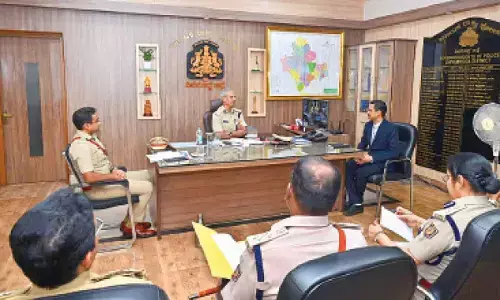Time women in India get their rights

The Union Government’s recent draft national policy for women surprisingly has left out marital rape, pre-nuptial agreements and personal laws.
The Union Government’s recent draft national policy for women surprisingly has left out marital rape, pre-nuptial agreements and personal laws. Though personal laws might be a contentious issue and needs to be examined again and again, marital rape has been a subject of much discussion and debate among the educated sections of society. This should have formed a part of the national policy document.
However, this is the first time that the national policy for women, formulated way back in 2001, has been revised. But obviously the vital issues that were being raised have not been examined and it remains to be seen whether in the final policy documents, these would be incorporated after further discussion with lawyers, social activists and other stakeholders.
The policy, which will be finalized after receiving inputs from the above stakeholders, is expected to act as a roadmap over the next 15 years for dealing with women’s issues, ranging from discrimination to the expectations of the new emerging women. As is well known, there are various laws like Prevention of Domestic Violence Act, which can be used.
The question arises as to how many women can actually use them given that the percentage of women from the poorer strata using them might be less than 10 while the urban educated population fear the social stigma after complaining against the husband or the in-laws. Scandalously, successive governments have side-stepped these issues but there is need at this juncture for the Administration to be forthright and come out with its observations.
Also with the change of the social system with women’s education spreading far and wide, the opposite sex has been entering the workforce. Moreover, they have become conscious of their rights and try to assert them in family life. In such a situation, marital rape has emerged as an issue which needs to be clearly enumerated in the final policy document.
However, it is good to note that the draft includes provisions for unmarried, divorced and widowed women who constitute 21 per cent of India’s population and number about 73 million, according to the 2011 census, and calls for legislative, economic and social recognition of the single woman category. It is no secret the social position of a single woman in our society is rather pathetic. Even those who have sufficient money are not quite happy as spending time becomes a problem for them.
The position of women who are financially weak is worse off as they are kept away from society. Consequently, the support of the law enforcing agencies is vital for curbing exploitation and abuse of women and girls along-with support and help from the community and voluntary organizations working in the field. Shockingly, a recent report by a Pakistani religious body in its Women Protection Bill, recommended that husbands could ‘lightly’ beat their wives if they disobey, defies his commends, refuses to dress according to his wish and turns down demand of physical contact.
A beating is also permissible if a woman does not observe Hijab, interacts with strangers, speaks loudly and provides money to people without her husband’s consent. Indeed, such fundamentalist recommendations clearly violate a women’s human right to existence. And such an attitude is possibly prevalent in many Islamic countries of Africa.
Undoubtedly, these reveal that patriarchy still rules and women do not have the right to assert and live as per their wish. There is obviously a need to change this attitude which can only be possible if there is intervention at the international level. However, as far as India is concerned where secular and progressive attitudes specially towards women have been manifest, there is a lot that the Government can do.
Women have now steadily become educated, even in rural areas, and should be made aware of their rights in society and the laws that could protect them from all types of exigencies. Only strict implantation of these laws would help women live a better life. True, crimes against women have increased in some States but it is good to know that these crime reports are now increasingly being filed or being highlighted in the media.
But, on the other hand, the opposite sex is still being looked by a section of society as a commodity for pleasure and enjoyment. In sum, this attitude has to change and women have to be given their dignified position in society. True, such an attitudinal change is difficult to bring about but only a change can bring about the much-needed transformation in society.
Patriarchy cannot rule in modern day life as both men and women have to be equal partners in society. Unless gender disparity is reduced, one cannot expect a balanced development of society and of the country. (INFA)
By Dhurjati Mukherjee














